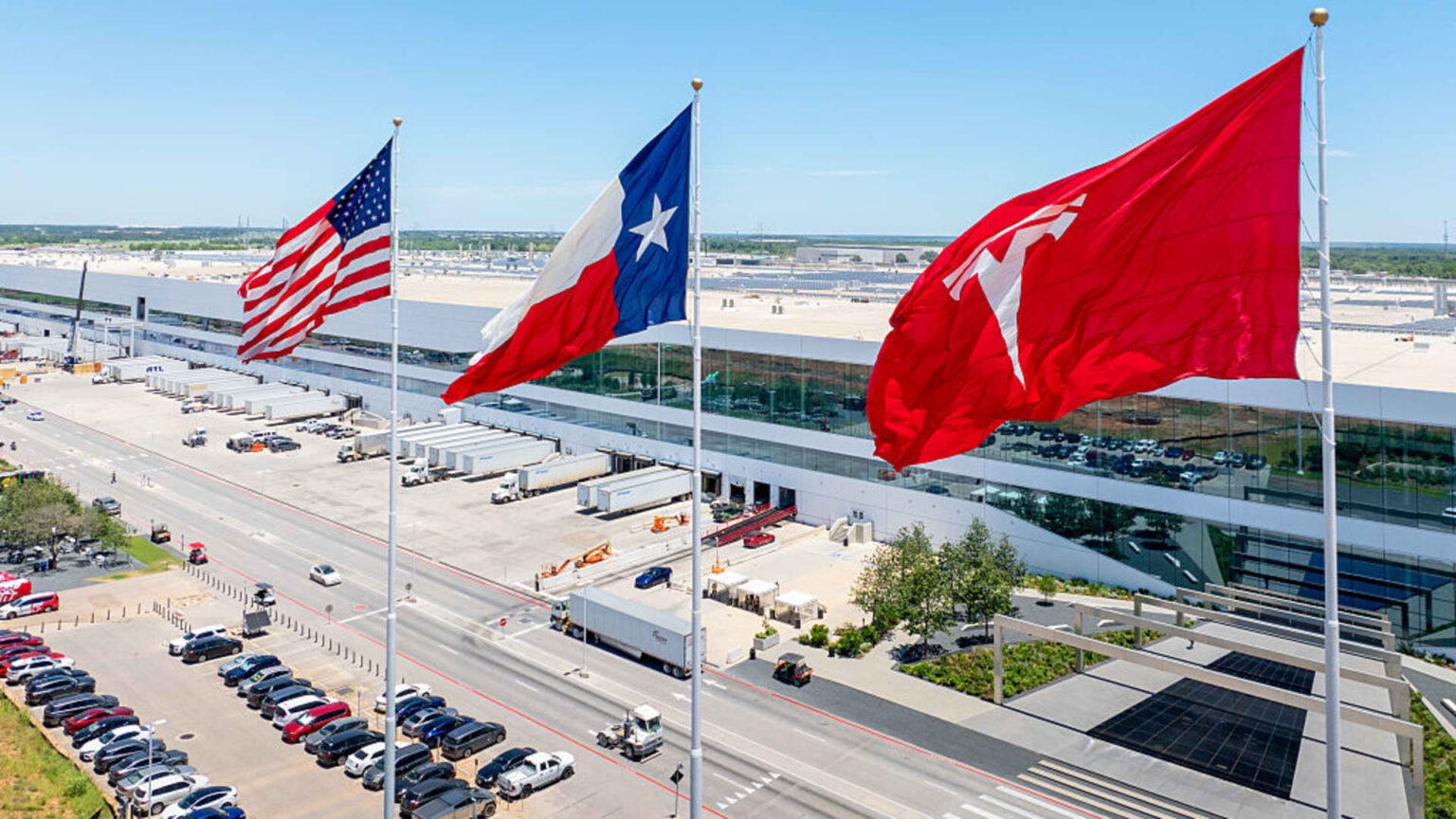In an aerial view, the Tesla headquarters is seen in Austin, Texas, on July 24, 2025.
Brandon Bell | Getty Images
Tesla has been granted a permit to run a ride-hailing business in Texas, allowing the electric vehicle maker to compete against companies including Uber and Lyft.
Tesla Robotaxi LLC is licensed to operate a “transportation network company” until August 6, 2026, according to a listing on the website of the Texas Department of Licensing and Regulation, or TDLR. The permit was issued this week.
Elon Musk’s EV company has been running a limited ride-hailing service for invited riders in Austin since late June. The select few passengers have mostly been social media influencers and analysts, including many who generate income by posting Tesla fan content on platforms like X and YouTube.
The Austin fleet consists of Model Y vehicles equipped with Tesla’s latest partially automated driving systems. The company has been operating the cars with a valet, or human safety supervisor in the front passenger seat tasked with intervening if there are issues with the ride. The vehicles are also remotely supervised by employees in an operations center.
Musk, who has characterized himself as “pathologically optimistic,” said on Tesla’s earnings call last month that he believes Tesla could serve half of the U.S. population by the end of 2025 with autonomous ride-hailing services.
The Texas permit is the first to enable Tesla to run a “transportation network company.” TDLR said Friday that this kind of permit lets Tesla operate a ride-hailing business anywhere in the state, including with “automated motor vehicles,” and doesn’t require Tesla to keep a human safety driver or valet on board.
Tesla didn’t immediately respond to a request for comment.
As CNBC previously reported, Tesla robotaxis were captured on camera disobeying traffic rules in and around Austin after the company started its pilot program. None of the known incidents have been reported as causing injury or serious property damage, though they have drawn federal scrutiny.

In one incident, Tesla content creator Joe Tegtmeyer reported that his robotaxi failed to stop for a train crossing signal and lowering gate-arm, requiring a Tesla employee on board to intervene. The National Highway Traffic Safety Administration has discussed this incident with Tesla, a spokesperson for the regulator told CNBC by email.
Texas has historically been more permissive of autonomous vehicle testing and operations on public roads than have other states.
A new law signed by Texas Republican Gov. Greg Abbott goes into effect this year that will require AV makers to get approval from the state before starting driverless operations. The new law also gives the Texas Department of Motor Vehicles the authority to revoke permits if AV companies and their cars aren’t complying with safety standards.
Tesla’s AV efforts have faced a number of challenges across the country, including federal probes, product liability lawsuits and recalls following injurious or damaging collisions that occurred while drivers were using the company’s Autopilot and FSD (Full Self-Driving) systems.
A jury in a federal court in Miami last week determined that Tesla should hold 33% of the liability for a fatal Autopilot-involved collision.
And the California DMV has sued Tesla, accusing it of false advertising around its driver assistance systems. Tesla owners manuals say the Autopilot and FSD features in their cars are “hands on” systems that require a driver ready to steer or brake at any time. But Tesla and Musk have shared statements through the years saying that a Tesla can “drive itself.”
Since 2016, Musk has been promising that Tesla would soon be able to turn all of its existing EVs into fully autonomous vehicles with a simple, over-the-air software update. In 2019, he said the company would put 1 million robotaxis on the road by 2020, a claim that helped him raise $2 billion at the time from institutional investors.
Those promises never materialized and, in the robotaxi market, Tesla lags way behind competitors like Alphabet’s Waymo in the U.S. and Baidu’s Apollo Go in China.
Tesla shares are down 18% this year, by far the worst performance among tech’s megacaps.
https://www.cnbc.com/2025/08/08/tesla-robotaxi-scores-permit-to-run-ride-hailing-service-in-texas.html


